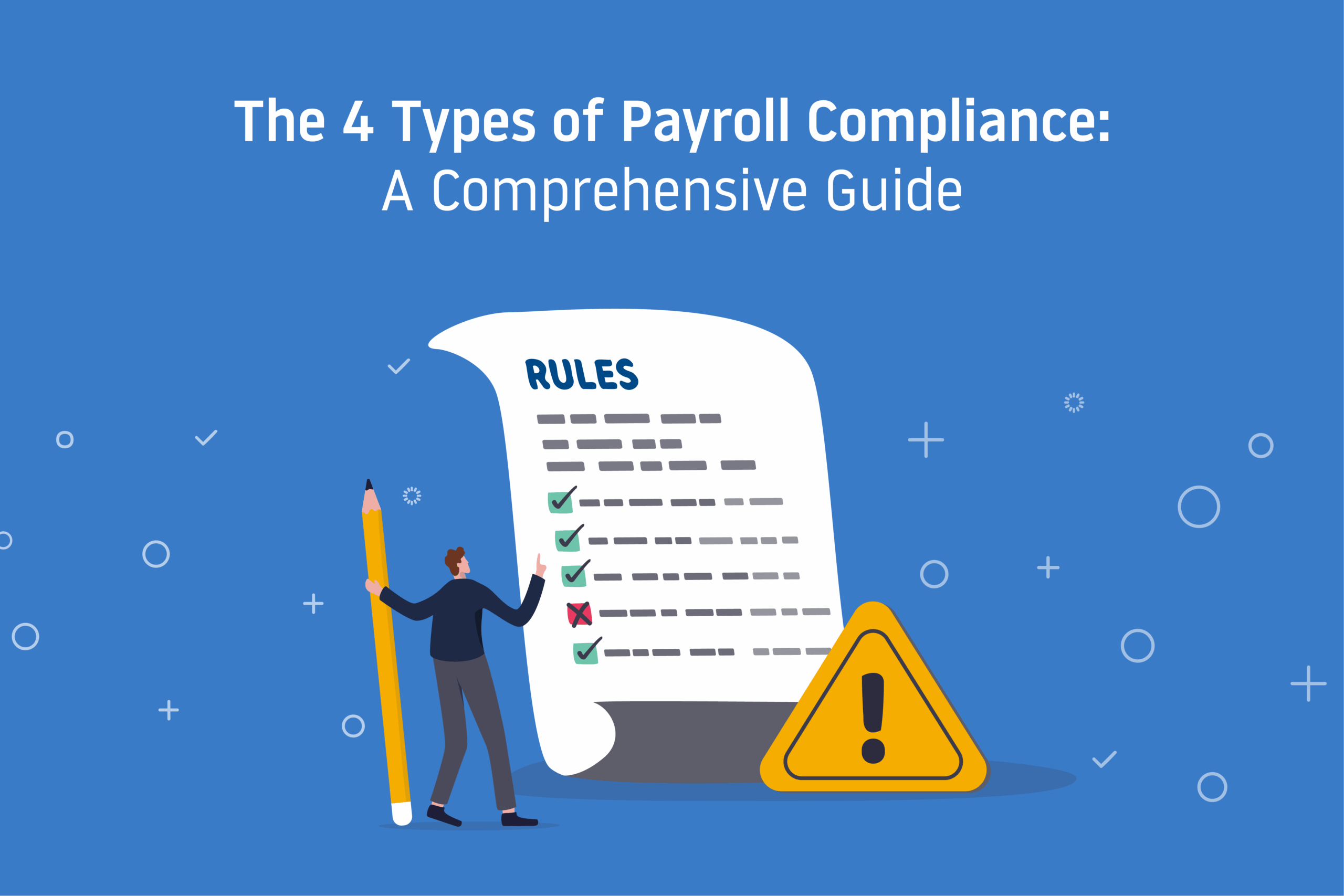Share This Post



In today’s modern and complex business environment, payroll compliance is paramount for all businesses, especially small businesses. Ensuring payroll compliance means adhering to various laws and regulations that govern how employees are paid and how payroll taxes are handled. For small businesses, navigating these regulations can be particularly challenging due to limited resources and the constantly changing legal landscape.
This guide aims to provide a helpful overview of the four main types of payroll compliance: federal, state, local, and international. Understanding and implementing these compliances can help avoid costly fines and legal issues, ensuring smooth operations and peace of mind.
Federal payroll compliance is the adherence to the regulations set by the federal government that govern how businesses handle employee compensation and payroll taxes. The Fair Labor Standards Act (FLSA) and the Federal Insurance Contributions Act (FICA) are two key federal regulations with which businesses must comply.
State payroll compliance involves following payroll regulations specific to the state in which your business operates. These regulations often differ from federal requirements and can vary significantly from state to state.

Local payroll compliance refers to regulations set by city or county governments, which can include local taxes, minimum wage laws, and paid leave policies.
International payroll compliance involves managing payroll for employees working in different countries, each with its own set of payroll laws and regulations.
Businesses face several common challenges in maintaining payroll compliance, including keeping up with changing laws and managing multi-state or multi-national payrolls.
In 2018, the U.S. Department of Labor levied $1.2 million in back wages and exemplary damages to 133 workers for four restaurants in Northern California, including the locally set-up Taqueria Garibaldi. These restaurants violated the Fair Labor Standards Act (FLSA) by failing to pay employees minimum wage and overtime. This case highlights the serious financial consequences that small businesses can face for not complying with payroll regulations. Additionally, such violations can result in a small business being closed down indefinitely due to the overwhelming financial repercussions.

CUSTOMER SERVICE
CUSTOMER SERVICE
© 2025 Workwell™ Technologies, All Rights Reserved.
To provide the best experiences, we use technologies like cookies to store and/or access device information. Consenting to these technologies will allow us to process data such as browsing behavior or unique IDs on this site. Not consenting or withdrawing consent, may adversely affect certain features and functions.
Form submission will redirect you to our calendar
where you can schedule a free demo.